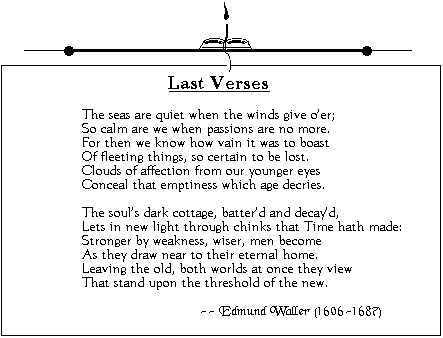
A New Testament Study - Philippians 3:18-21

18For, as I have often told you before and now say again even with tears, many live as enemies of the cross of Christ. 19Their destiny is destruction, their god is their stomach, and their glory is in their shame. Their mind is on earthly things.
In the previous verse, Paul offered up his own life as an example for Christians to follow: "Join with others in following my example, brothers" (Phil. 3:17). Here in vss. 18-21, Paul gives examples of those who should not be followed: "For, as I have often told you before and now say again even with tears, many live as enemies of the cross of Christ" (vs. 18). It seems in context that Paul is speaking primarily of certain professing Christians who are "enemies of the cross of Christ." Thus, Paul needs to warn the Philippians "often" not to be deceived by the false professors. False professors are a much greater danger to us than are open atheists. We are warned in the New Testament concerning false professors more than we are about those who are openly enemies of Christ. We see here that Paul warned the Philippians "often" concerning these "enemies of the cross of Christ."
As he was languishing in imprisonment and expecting to be put to death as a martyr, Paul did not lament his own condition; but he did lament (giving his warning "with tears") the fact that "many live as enemies of the cross of Christ." It is not criminals, or adulterers, or even atheists who are bringing Paul to tears; it is the Christians who are not living up to their professed Christian faith. Paul's tears demonstrate his care for the false Christians. They are tears of sadness, of pity on those professing Christians who are missing out on so much that God has to offer them. We likewise should not by any means delight in reproving others for their lack of faith, or for their errors in doctrinal belief. Rather, we should, like Paul, do so "with tears", with sadness that there is such error, praying that the Holy Spirit would work to correct such errors and bring all professing Christians into the true Body of Christ.
Paul's warning to the Philippians was all the more necessary because there were "many" who live as enemies of the cross of Christ: this was not an isolated problem. Where there is wheat, there are also tares. Where there are sheep, the wolves gather too. There were (and are) "many" who live as enemies to the cross of Christ, as compared to the paucity of those in Christ's "little flock" (see Luke 12:32). It is the tendency of many people to follow the "many". We must be careful not to adopt the majority opinion just because it is the majority opinion.
Paul enumerates the ways in which the false professors are "enemies of the cross of Christ":
* "Their destiny is destruction" - In other words, they are "enemies of the cross of Christ" by not accepting the salvation of God that can only be had through Christ. We all have sinned against God, and so, apart from the cross of Christ, our "destiny is destruction". Without paying for our sin, we cannot live eternally with our Holy God. God has provided a way for us to pay for our sins through "the cross of Christ". The "enemies of the cross of Christ" do not accept this gift of salvation, and so, rather than living eternally in the presence of God, "their destiny is destruction".
* "Their god is their stomach" - They are "enemies of the cross of Christ" because they are more concerned about satisfying the desires of the flesh than they are about what they really need: the salvation of God through "the cross of Christ". They put the needs of their body ahead of the needs of their soul. In doing so, they make a "god" of their stomachs. Christ warned of this, and gave us a remedy: "What good will it be for a man if he gains the whole world, yet forfeits his soul?" (Matt. 16:26); "But seek first His kingdom and His righteousness and all these things"--that is, the needs of your body--"will be given to you as well" (Matt. 6:33).
* "Their glory is their shame" - They are "enemies of the cross of Christ" because they see no need for God's salvation. They sin wantonly, guiltlessly, even "glory[ing] in their shame".
* "Their mind is on earthly things" - They are "enemies of the cross of Christ" because they are so preoccupied with the things of this world that they ignore God's salvation. They don't have time to consider Christ, to learn about His work on the cross, to cultivate a relationship with Him, to seek to serve Him.
20But our citizenship is in heaven. And we eagerly await a Savior from there, the Lord Jesus Christ, 21who, by the power that enables Him to bring everything under His control, will transform our lowly bodies so that they will be like His glorious body.
In contrast to those whose "mind is on earthly things" (vs. 19), Paul says: "But our citizenship is in heaven" (vs. 20). There is a great difference between the "enemies of the cross of Christ" and us, whose "citizenship is in heaven". "Their destiny is destruction", while our destiny is abundant life eternal in the presence of God. "Their god is their stomach", while our God is the True and Living God, the Creator of the universe. "Their glory is in their shame", while our glory is in the obedience to and service of God. "Their mind is on earthly things", while "our citizenship is in heaven. And we eagerly await a Savior from there". The differences between them and us are many and great, between theirs and our destiny, our allegiance, our mindset, our hope, our glory, our attitude, our values, the way we spend our time, the things that we meditate upon, etc.
The statement "our citizenship is in heaven" implies much. First, it implies that "heaven" is a real place, a real country (of sorts), of which we can be citizens. Next, it implies that we already are citizens of heaven. This should affect our behavior here in this foreign land. It is not unusual (especially in these days of world travel) for people to be aliens in a strange country. I live in Southern California and there are many here who are citizens of other countries, or who consider their true home to be another country. One can easily tell that their home is another country: they speak the language of their home country, they eat the food of their home country, they practice the culture of their home country, many times they speak via telephone to friends and relatives in their home country, etc. So we too, as citizens of heaven, should act as citizens of heaven, and consider ourselves aliens to this world. And it should be clear to those around us that we are citizens of heaven. We should speak the language of our home country, the language of love, the language of kindness, a good word to others at a seasonable time. We should feast on the food of our home country, which is the Word of God. We should practice the culture of our home country, living as Christ lived, living in obedience to God's Word, living for service to our Lord and King in heaven. Finally, we should keep in touch through prayer with our Father in heaven. Christ lived in such a way: "All the time He was amongst men, He was a citizen of that city. Therefore, He lay in a borrowed manger; His body was deposited in a borrowed grave; He had nowhere to lay His head; and when everyone went to his own home, He went to the Mount of Olives."[Footnote #7]
Moreover, as citizens of heaven, we should yearn for the day when we will be brought home: "And we eagerly await a Savior from there, the Lord Jesus Christ, who, by the power that enables Him to bring everything under His control, will transform our lowly bodies so that they will be like His glorious body" (vs. 20-21). What a privilege! The King of Heaven Himself will come down an rescue us from this place! True Christians "eagerly await" this coming. To "eagerly await" assumes the possession of faith, hope and patience. Christians who do not "eagerly await" the coming of Christ are (at best) careless Christians, (at worst) faithless, false Christians. Such yearning for the day of Christ will necessarily affect our behavior here. We live, not as a slave to the flesh, but as a bride waiting for her spouse.
We are blessed. We can look forward to the return of Christ. For the "enemies of the cross of Christ", His coming is "destruction". For us, His coming is the redemption of our bodies, as Christ, "by the power than enables Him to bring everything under His control, will transform our lowly bodies so that they will be like His glorious body" (vs. 21). His transforming power is the basis of our hope. The power He demonstrated in His own life on earth ensures that He can use that same power to transform us. He will "bring everything under His control", conquering our sins, our addictions, our lusts, giving us a "glorious body" like His. While the "enemies of the cross of Christ" make a god out of their stomachs, out of their bodily desires, we long for the day when Christ will rid our "lowly bodies" of those tormenting desires. Oh, what a day that will be! To be "transformed" by Christ so that we have a "glorious body" like His! An immortal, incorruptible, unchanging, beautiful body like His! Praise be to God for the hope that we have!
Yes, Lord, we praise You for the hope we have! May this hope be a strong foundation in our lives, emanating in joy, love and service. Instill in us, by Your Spirit, a great longing for the day when Christ will come and transform us. May that day be all that we yearn for in this life, overshadowing all of the desires of our flesh. Be glorified in our lives. In the name of Christ, who will be both the cause and pattern of our future transformation into glory, we pray these things, Amen.

Footnote:
7. F. B. Meyer, Devotional Commentary on Philippians, pg. 198.